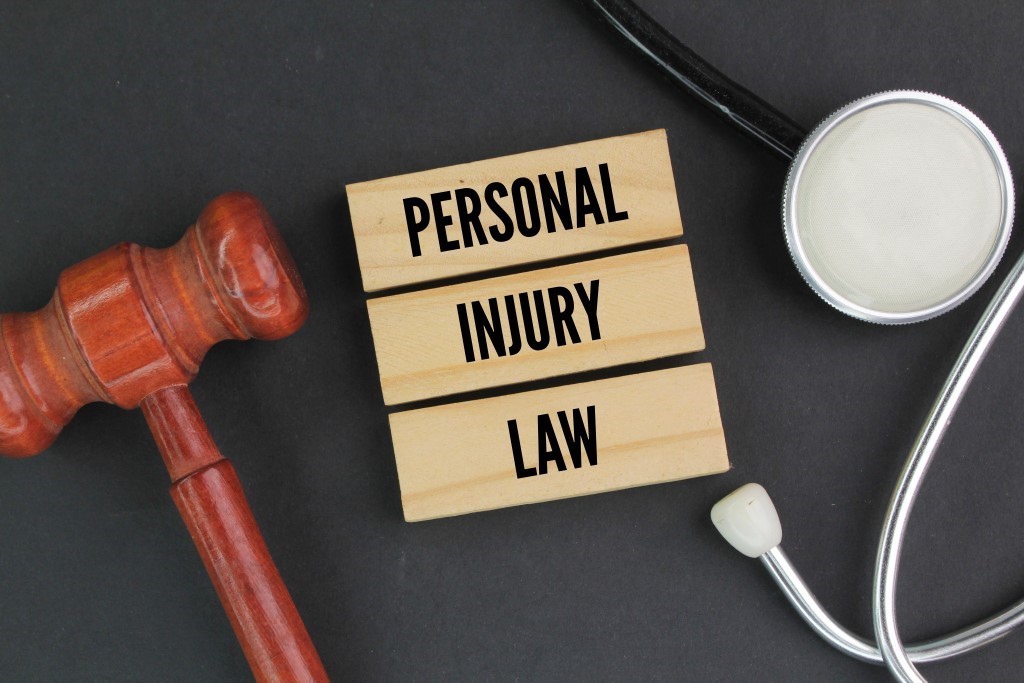Contents of this Post
TogglePersonal injury cases are no simple matter. In many instances, these cases involve severe concerns like permanent and debilitating physical damage. They’re common civil cases, where filings surged up to 150% in 2021. (1)
Understanding the laws that govern personal injury cases is crucial, whether you’re directly involved or supporting someone who is. For one, these laws can significantly impact the outcome of a case, potentially affecting the financial compensation awarded to victims.
Read on as this article looks at what laws shape personal injury cases, equipping you with essential knowledge to navigate the complexities of personal injury litigation effectively.
Intentional torts are deliberate acts that cause harm to another. Common intentional torts in personal injury cases include assault, battery, false imprisonment, and defamation. If you are a victim of such actions, consulting a trusted personal injury law firm New York can help you pursue justice and secure rightful compensation.
Elements of a Personal Injury Case
A personal injury case typically involves four elements:
Duty of Care
In personal injury cases, the defendant is owed a legal duty to the plaintiff. Duties may arise from doctor-patient relationships, landlord-tenant relationships, employer-employee relationships, and so forth.
Breach of Duty
A breach of duty occurs when the defendant fails to meet the required standard of care. This means that the defendant acted unreasonably or carelessly, different from the way a reasonable person would have under the same circumstances.
Causation
The plaintiff must prove that the defendant’s negligence was the actual cause of the injuries when making a case for personal injury. It’s known as the ‘but for’ test where, if it wasn’t for the negligence on the part of the defendant, the plaintiff’s injury wouldn’t have happened.
Damages
If the plaintiff can show that the negligence of the defendant indeed caused the injuries, then the plaintiff may be awarded damages. Damages include medical expenses, wages lost, pain and suffering, and punitive damages in some cases.
A reputable attorney experienced in personal injury law can help you better understand these elements. Experts in the law ensure you know enough of your situation so you can work together to defend your personal injury claim.
Specific Laws and Regulations
In addition to these general legal principles, specific laws and regulations govern various types of personal injury cases.
Negligence
Most personal injury claims are based on negligence, which occurs when someone fails to exercise reasonable care, leading to harm to another.
Statutory Law
Various statutes influence personal injury cases. The first is workers’ compensation laws providing a system for compensating injured workers without the need for litigation, but benefits are often limited. Next are motor vehicle statutes that affect car accident cases, including rules regarding insurance coverage, seatbelt use, and driving under the influence. Lastly, premises liability laws relate to injuries sustained on someone else’s property, and property owners must maintain their property in a reasonably safe condition.
Strict Liability
In certain situations, a defendant may be held liable for harm caused even if they were not negligent. This is known as strict liability, which is often applied in cases involving dangerous activities or defective products.
For example, a company that manufactures a defective product can be held strictly liable for injuries caused by that product, regardless of whether the company was negligent.
Intentional Torts
Intentional torts are deliberate acts that cause harm to another. Common intentional torts in personal injury cases include assault, battery, false imprisonment, and defamation.
Assault is a threat to cause harm to another person, while battery is the actual physical harm to another person. False imprisonment occurs when someone is confined against their will. Defamation is the making of false statements that harm someone’s reputation.
Good Samaritan Laws
Good Samaritan laws protect individuals who voluntarily provide aid to someone in distress from being sued for unintentional injuries or wrongful death. These laws encourage people to help others without fear of legal consequences.
Insurance Law
Insurance policies and regulations play a significant role in personal injury lawsuits, especially in determining how claims are processed and paid. For example, if a driver is involved in an accident and is at fault, their insurance company may be required to pay damages to the other party.

Medical Malpractice Laws
Medical malpractice laws govern cases where healthcare professionals’ negligence leads to patient harm. Each year, nearly 795,000 Americans suffer permanent disability or lose their lives due to diagnostic errors alone. This statistic underscores the critical importance of these laws in protecting patient rights and ensuring accountability in healthcare. However, medical malpractice cases can be complex and require specialized legal expertise.
Legal Remedies and Strategies
When involved in a personal injury case, it’s essential to consider the available legal remedies and strategies.
Settlement Negotiations
Most personal injury cases—an estimated 95%—are often resolved through settlement negotiations. This involves both parties working with their attorneys to reach an agreement on compensation. (3)
These negotiations can be long, and both parties need to bear with each other. You need to be ready to discuss the bright and dark sides of your case, too, and the possible outcomes of having the suit taken to trial.
Trial
When negotiation fails, the case is taken to trial. During the trial, a jury or judge outlines the facts of the case and awards damages.
The trial process can be stressful and time-consuming. You’ll need to gather evidence, prepare witnesses, and present your case to a jury or judge. The outcome of a trial is also uncertain, and there’s always the risk of an unfavorable verdict.
Appeals
Appeals are discretionary, and in most cases, the chances of success are low. To appeal against the judgment of a court, you’ll have to identify the errors which the judge might have committed during the trial. A court of appeal may look into the judgment passed by the lower court and then find out if any harmful errors occurred or not.
Wrapping Up
An understanding of the various laws that affect personal injury actions can enable you to protect your interests by way of realizing your rights and options. However, it’s important to recognize that each case presents unique challenges and nuances. That said, consulting an experienced personal injury attorney remains invaluable. These legal professionals can offer tailored advice, interpret how specific laws apply to your situation, and guide you through the often-daunting legal process.
References
- “Federal Judicial Caseload Statistics 2021,” Source: https://www.uscourts.gov/statistics-reports/federal-judicial-caseload-statistics-2021
- “Report Highlights Public Health Impact of Serious Harms From Diagnostic Error in U.S.,” Source: https://www.hopkinsmedicine.org/news/newsroom/news-releases/2023/07/report-highlights-public-health-impact-of-serious-harms-from-diagnostic-error-in-us
- “Personal Injury Settlement Amounts Examples (2024 Guide),” Source: https://www.forbes.com/advisor/legal/personal-injury/personal-injury-settlement-amounts/

